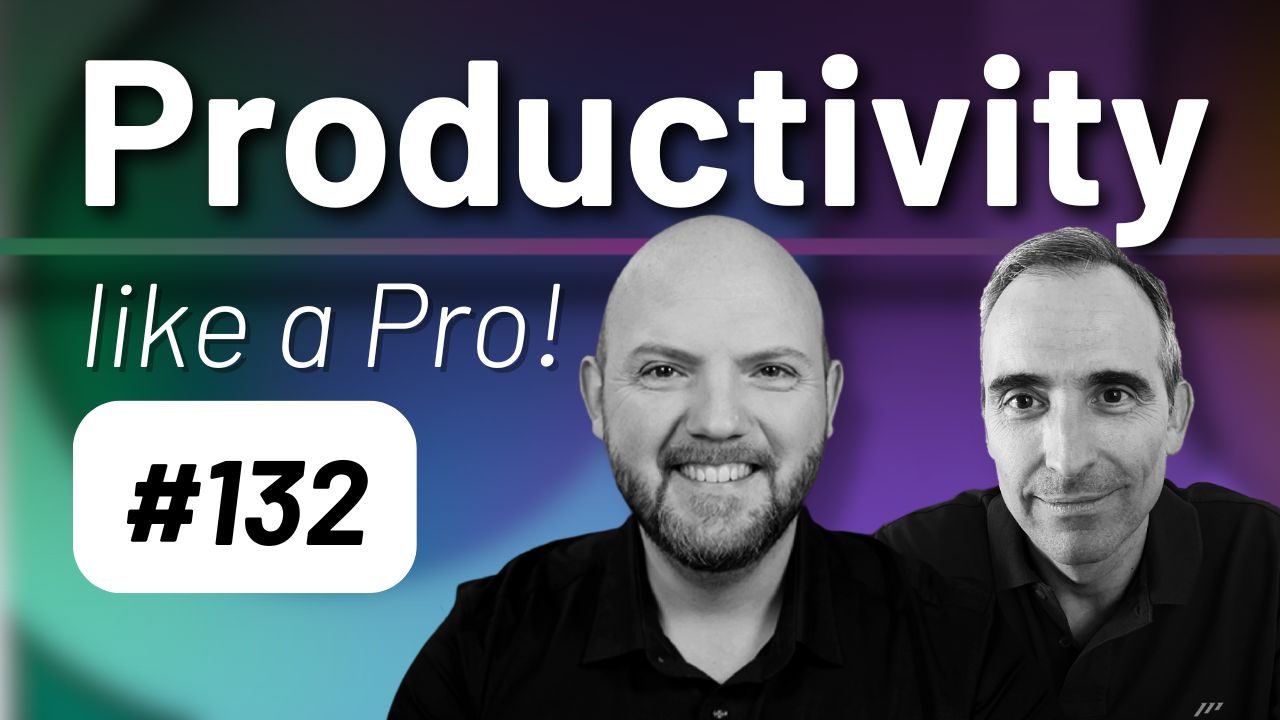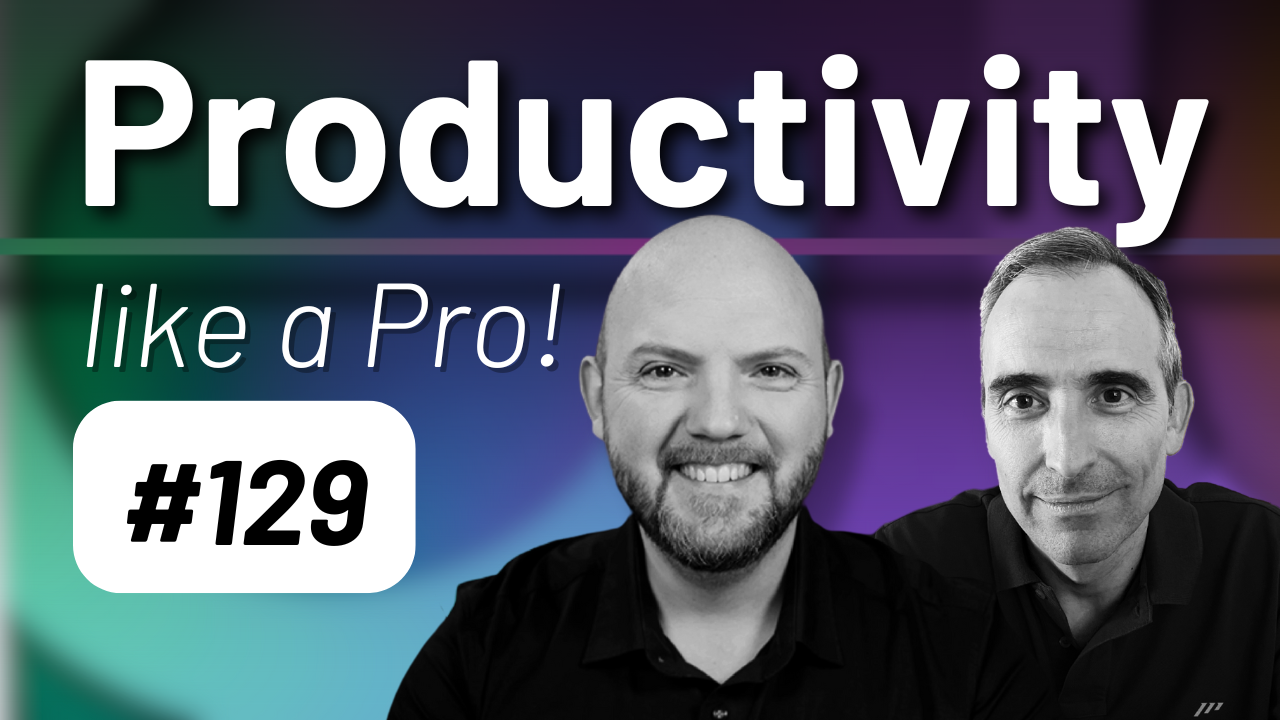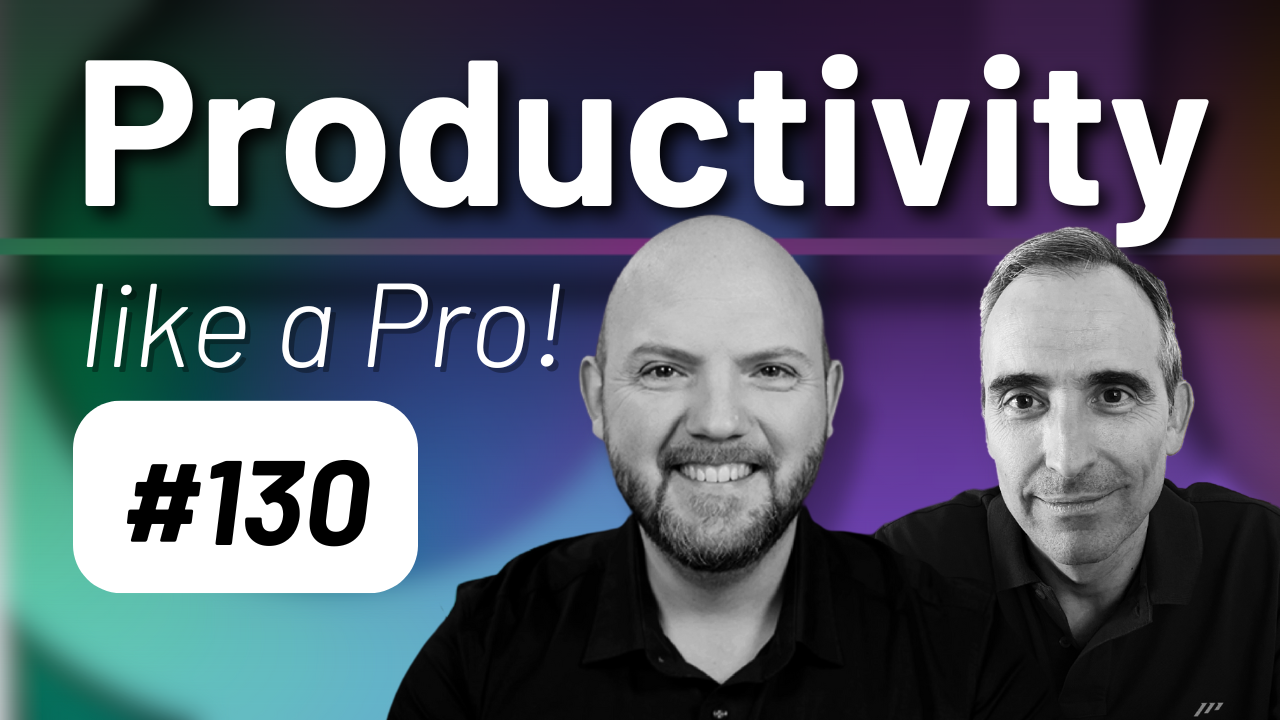In this Productivity like a Pro®, Tom Solid and co-founder Paco Cantero explore the critical distinctions between task management, calendars, and planners. They discuss why it’s essential for Busy Professionals to recognize the different purposes each tool serves and how misunderstanding these roles leads to disorganization and chaos.
Task Manager vs. Calendar vs. Planner
Understanding the unique functions of a task manager, calendar, and planner is vital. As Paco points out, one of the common mistakes professionals make is using just one tool to handle everything—whether it’s task management, time blocking, or event scheduling. This approach creates unnecessary complexity and confusion.
A calendar should be used primarily for fixed events and appointments, not as a to-do list. On the other hand, task managers like Todoist or ClickUp help categorize tasks based on urgency, responsibility, and depth of work. The planner’s role is to combine these elements, enabling you to structure your time around constraints while focusing on prioritized tasks.
Weekly Goals and Managing Time
During the episode, Tom and Paco explain the process they use to manage their weekly goals. After an agenda meeting where priorities are clarified, these goals are then transferred into a planner like Sunsama. The planner helps visualize available time around fixed meetings, ensuring tasks are scheduled without cluttering the calendar. This method prevents overestimating what can be accomplished and helps professionals say “no” to unnecessary interruptions.
Reducing Meeting Overload
Meetings can often be a productivity killer. Tom shares insights from his corporate experience where back-to-back meetings hindered work progress. The key to reducing meeting overload is using a system, like the ICOR® methodology, where information is organized in a single source of truth. This eliminates the need for endless discussions and follow-up meetings by having all decisions and updates readily accessible to the team. The ICOR® methodology promotes asynchronous work, empowering professionals to focus on their expertise rather than being trapped in unnecessary meetings.
The Power of a Single Source of Truth
Tom and Paco emphasize the importance of a single source of truth, which helps eliminate confusion and wasted time. When teams have a well-organized project management system in place, such as ClickUp, everyone knows what they need to do, reducing the need for constant verbal updates. By ensuring that all decisions and actions are documented in one place, the workflow becomes much more efficient and clear.
For more insights on how to optimize your productivity and create seamless workflows, sign up for the Paperless Movement® Membership. You’ll gain access to comprehensive courses on Task Management, Project Management, Note-Taking, and more, designed to help you take control of your digital workspace.







